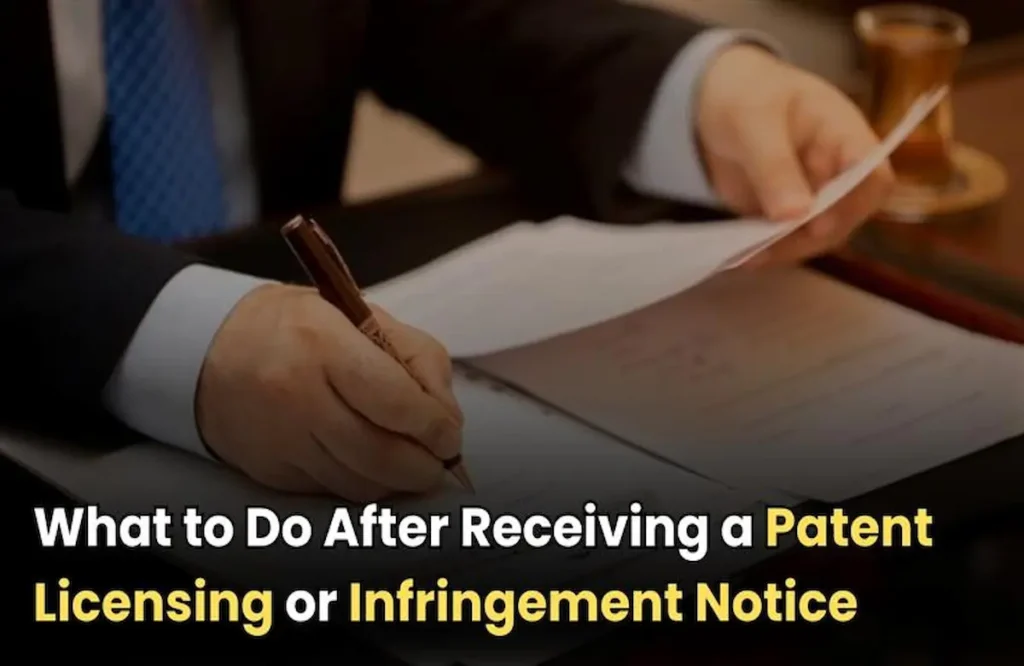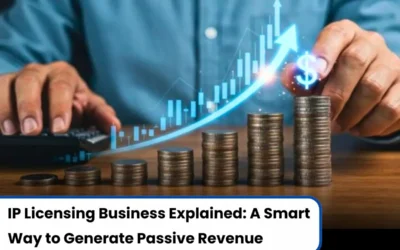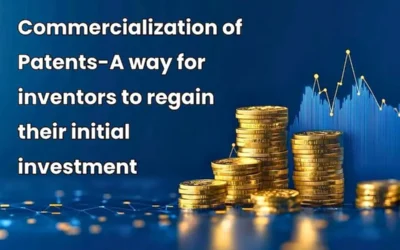
Patent licensing is one of the most common and effective ways of patent monetization in India. With countless companies operating across diverse industries, there are equally countless possibilities of receiving a patent-related objection or patent licensing notice. When such a situation arises, it’s crucial to remain calm, composed, and patient. Reacting hastily can often make matters worse. If your company ever faces a patent licensing or infringement notice, understanding how to respond strategically can protect your business from legal and financial setbacks. Keep reading to learn what steps you should take and how to navigate this situation with confidence.
What Does Patent Licensing Mean and When Can You Get a Patent Licensing Notice?
Patent licensing is a legal practice that allows the owner of a patent to give permission to another individual or company (the licensee) to make, use, sell, or distribute an invention protected by that patent — usually in exchange for a fee or royalty. It’s a common practice in India and worldwide, helping innovators earn revenue from their inventions without directly manufacturing or marketing products. There are multiple reasons that you or your company might receive a patent infringement notice, such as:
- Your product or process may unknowingly incorporate a feature or method that is already patented by someone else.
- Even if developed independently, your innovation might perform the same function or achieve the same result as a patented invention.
- Launching a product without conducting a Freedom to Operate (FTO) or patent search can lead to accidental infringement.
- You might assume a patent has expired or is invalid — but if it’s still active, using that technology can trigger a notice.
- A competitor may monitor your products and send a notice if they believe you are entering their patented space.
- If you had a previous license agreement and it expired or was violated, the patent holder may issue an infringement notice.
- Some entities acquire patents only to demand settlements from companies they accuse of infringement.
In both cases, these communications are serious and require careful attention, as they mark the start of a legal and negotiation process that can impact your business operations and intellectual property strategy.
How to Respond to a Patent Infringement Notice
Receiving a patent infringement notice can be intimidating, but it’s important to stay calm and handle the situation strategically.
- The first step is to read the notice carefully and understand what the sender is claiming — including the patent number, the product or process allegedly infringing, and any deadlines or demands mentioned.
- Avoid responding on your own, as any statement made without legal advice could be used against you later. Instead, consult a qualified patent attorney immediately.
- Your attorney will analyze the patent’s validity, review your product or technology, and determine whether you are actually infringing.
- They may conduct a detailed patent infringement analysis to compare your product with the patent claims and identify possible defenses or design alternatives.
- You and your attorney can decide the best response strategy — whether to deny the claim, negotiate a license, redesign your product, or challenge the patent’s validity through legal means. It’s also essential to respond within the specified timeframe, as ignoring or delaying a response can escalate the issue to a formal lawsuit.
- Finally, use this experience to strengthen your intellectual property strategy by conducting patent searches before launching new products, filing your own patents, and including indemnification clauses in your business contracts.
Read Also: What We Do After Patent Monetization for Long-Term Success?
Conclusion
Receiving a patent licensing or infringement notice can be challenging, but it’s not the end of the road. The key is to stay calm, act strategically, and seek expert legal guidance before taking any step. By understanding the notice, analyzing your position, and responding professionally, you can protect your business from unnecessary risks and maintain your credibility. In today’s competitive market, being informed and proactive about intellectual property rights is the best way to safeguard innovation and ensure long-term success.









